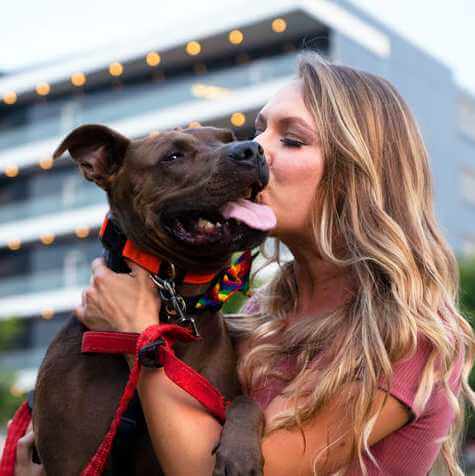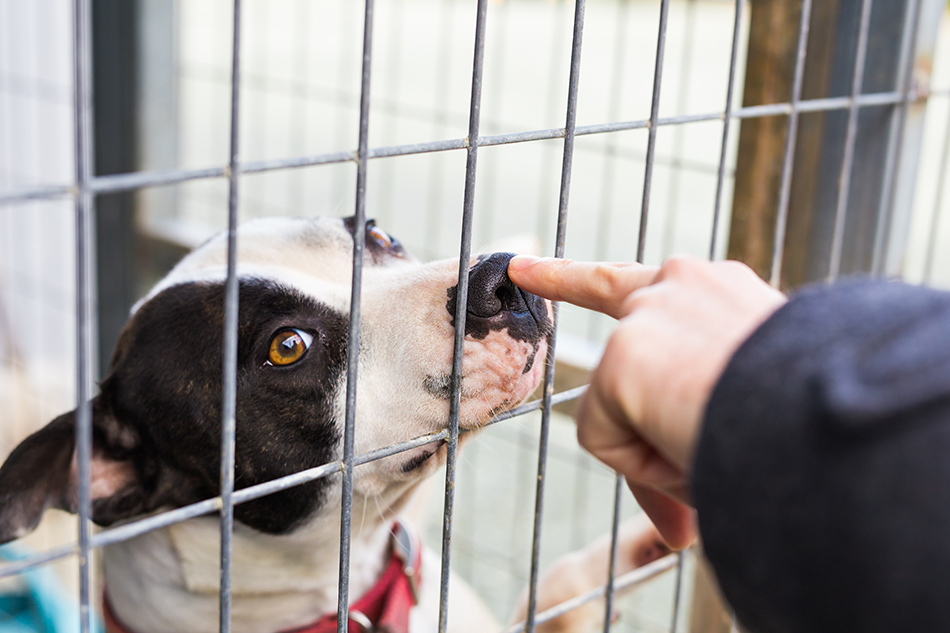In this post:
- What should we be doing instead of Breed Specific Legislature?
- What are the current laws regarding breeding?
- What should we do then?
Everyone wants to live in safe, humane communities. And every good public safety plan should include efforts to protect community members from dangerous dogs. However, when it comes to passing and enforcing dangerous dog laws, the focus needs to be on the negligent and reckless owners, not the pets. That is the only effective way to protect both people and pets.

Since 2012, an increasing number of cities have repealed breed-discriminatory laws and substituted them with comprehensive breed-neutral laws. These laws focus on problematic pet owners and individual dog behavior, and not on the dog’s breed. As of 2017, a total of 21 states had passed provisions prohibiting breed-discriminatory laws and policies by municipalities.
What should we be doing instead of Breed Specific Legislature?
What are the current laws regarding breeding?
Currently, there are some regulations in place for dog breeders. According to APHIS, “Facilities that breed and sell their animals to pet stores, brokers, or research facilities are covered under the Animal Welfare Act (AWA). The facility operators are required to:
- Obtain a license from the U.S. Department of Agriculture’s (USDA) Animal and Plant Health Inspection Service (APHIS).
- Submit to unannounced compliance inspections by APHIS inspectors to ensure that the animals receive humane care and treatment.
Several individual states and local governments have their own laws for breeders that protect animals. USDA-licensed breeders and dealers also have to comply with these laws.

Unfortunately, even with these laws and regulations in place, there are still many puppy mills and backyard breeders operating today. Instead of spending money on policing dogs who are already in homes, we should be putting resources into trying to control the breeders who do not follow the rules.
Currently, there are ONLY about 2,000 federally licensed dog breeders in the U.S. In addition to these, there are also many cruel breeders who manage to avoid government oversight because they operate under the USDA’s radar. Those that are licensed are required to meet the USDA’s minimum standards of care … but do they always?
When breeders are actually inspected, the findings don’t always carry much weight. Even breeders with severe regulation violations go unpunished! Additionally, the USDA does not look for Animal Welfare Act compliance when it renews breeder licenses every year. That means that breeders with violations for sick, mistreated, or injured animals can stay in business—even though they have a record and are known to be breaking the law!
What should we do then?
As dog owners, we need to be better educated about where we are getting our dogs. Yes, the puppy in the pet store looks sweet and cute, but you need to find out where they came from. You may be purchasing a puppy that was taken away from his mother too soon and will have behavioral issues because of it for the rest of his life. Or you may be adopting a dog that is a result of inbreeding and will grow up to be full of medical issues.
To prevent these things from happening, we need to make sure we are encouraging the licensing of breeding. It stops dogs from being harmed and gives us better control over what’s going to happen in our community as it pertains to the dog’s safety and community safety.
We have consumer protection for every other product, there’s no reason we can’t have it for animal welfare. Additionally, if you have somebody training your dog who uses fear and pain-based methods and creates problems and gives you misinformation.
Negligent and reckless pet owners create unsafe environments that put people and pets at risk. We need effective laws that address dog owners’ behavior, and not focus the blame only on the dog.
Special thanks to:

Deirdre ‘Little Darling’ Franklin, MSPP
Deirdre “Little Darling” Franklin is the founder, president, and soul behind Pinups for Pitbulls. She holds a master’s degree in public policy from Drexel University, where she specialized in breed-specific legislation. She is also the Volunteer & Foster Manager for the ASPCA Behavioral Rehabilitation Center in Weaverville, NC.

Drayton Michaels, CTC
Drayton Michaels, CTC is the owner of Urban Dawgs Dog Training in Red Banks, NJ. He also holds a Certification in Dog Training and Behavior Counseling from the San Francisco SPCA Academy for Dog Trainers.





